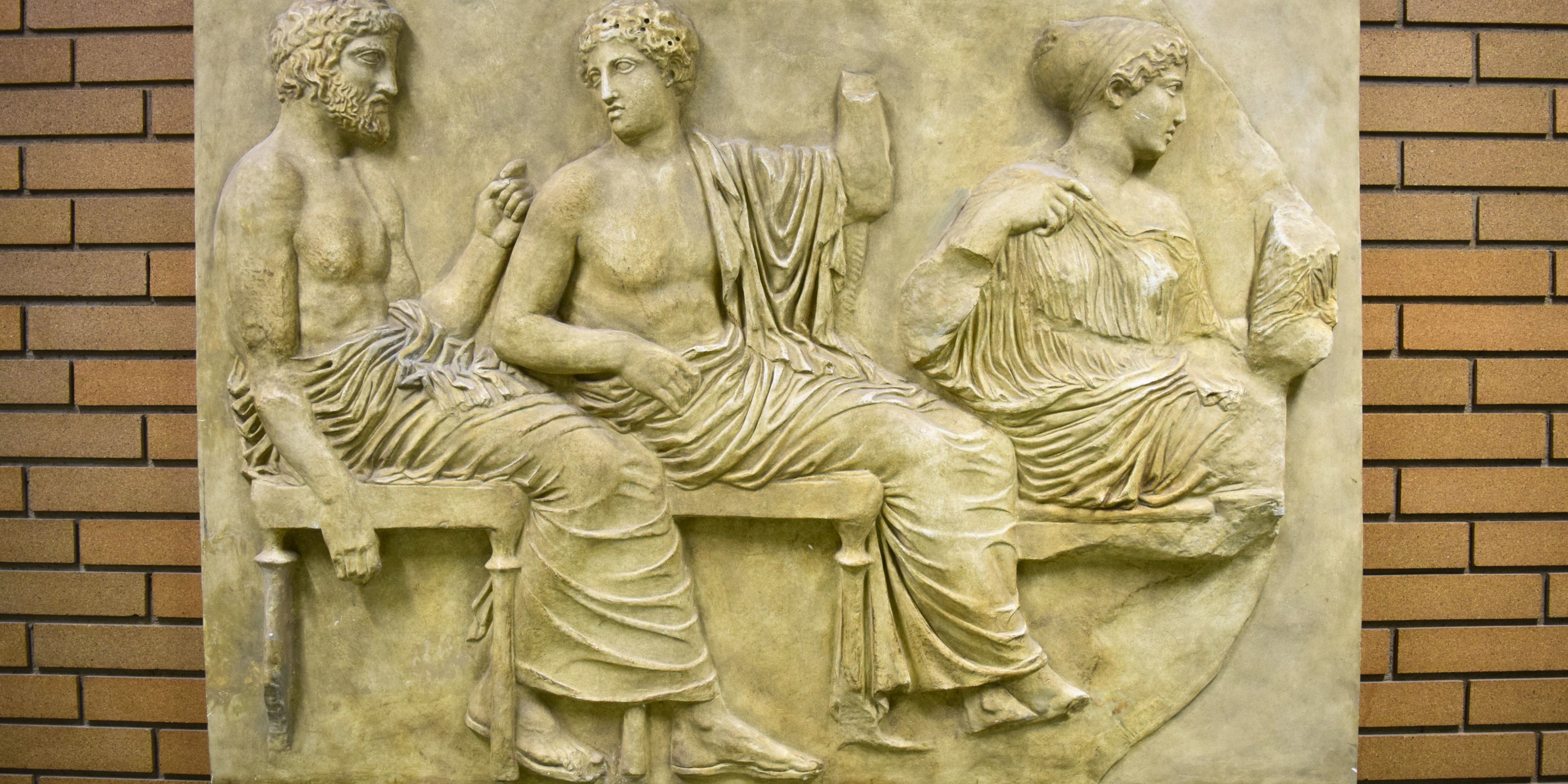Bachelor of Arts in Classics Degree Program Guide

Classics is the study of all aspects of the lives of the ancient Greeks and Romans. You can study their artwork, their culture, their history, their languages, their literature, their philosophy, their technology, their social and scientific views of the world around them, and the artifacts they left behind. Gain a deeper appreciation for the cultural, intellectual, and historical roots of modern society, enhancing your understanding of contemporary issues and contributing to a well-rounded, informed worldview.
An undergraduate degree in Classics will prepare you to do research, think, ask questions, and communicate your ideas – skills that will take you in many different personal, intellectual and career directions.
Academic Requirements for Classics Majors
- Any combination of courses in CLASS, GREEK and LATIN, totalling a minimum of 30 units and a maximum of 48 units at the senior level, with at least 18 units at the 300-level or above, including the below course requirements
- 6 units in GREEK and/or LATIN at the senior level
- 6 units of CLASS, GREEK, and/ or LATIN at the 400-level
- Students who anticipate graduate study in Classics are strongly advised to study at least one of GREEK or LATIN to the 400-level
- The requirement to include a minimum of 6 units in GREEK and/or LATIN at the senior level is waived for students who also complete the Certificate in Archaeology or a double major in Anthropology. Students in this situation are still strongly advised to take at least one year of GREEK and/or LATIN
- Either or both of GREEK 201 and LATIN 201 may be counted toward the requirement for 18 units at the 300-level or above
Academic Requirements for Classics Minors
- 12 to 42 units at the senior level in CLASS, GREEK, and/or LATIN, with at least 6 units at the 300- or 400-level
The University of Alberta Calendar will always contain the most up-to-date degree requirements for your program, and your requirements are determined by the calendar year you were admitted in.
What kinds of courses can Classics students take?
- CLASS 102 - Greek and Roman Mythology
- CLASS 110 - The Ancient World
- CLASS 220 - Introduction to the Methodology, Theory and Practice of Classical Archaeology
- CLASS 261 - Women, Gender and Sexuality in the Ancient World
- CLASS 284 - History of the Byzantine Empire
- CLASS 303 - Religion in Greco-Roman Antiquity
- CLASS 330 - From Alexander the Great to Cleopatra: The Hellenistic World
- CLASS 376 - Early Civilization I
What kinds of careers can you pursue with a Classics degree?
There are many different fields and career paths that students can pursue with a Classics degree. From museum curation to foreign service, graduates are equipped with communication, research and critical thinking skills to name a few, that are assets in today’s job market. Although there is a list of career options below, it is important to understand that careers are not linear. Intentionally engaging in a variety of activities and following your curiosities will open new opportunities that you might not have expected. To learn more about how you can put your Arts degree to work, stop by the HUB Career Centre (8917 HUB Mall) for more information.
- Museum Curator
- Archivist & Conservator
- Researcher
- Archaeological Field Technician
- Educator (Professor, Secondary or Primary)
- Film & Television Production
- Writer & Translator
- Educational Consultant
- Policy Analyst
- Diplomat or Foreign Service Officer
- Cultural Affairs Specialist
- Librarian
- Information Specialist
- Heritage Educator
- Tourism and Travel Coordinator
- +More!
Interested in gaining work experience related to your career goals? If so, apply to Arts Work Experience to gain full-time, PAID, work experience before you graduate!
Important Links
- Department website
- Students’ association information
- Full program overview
- Prospective student information and application
- Graduate studies information
- Current Arts student advising
Department Contact Information
- Department Undergraduate Advisor email: hcrug@ualberta.ca
- Department general contact email: hcr@ualberta.ca